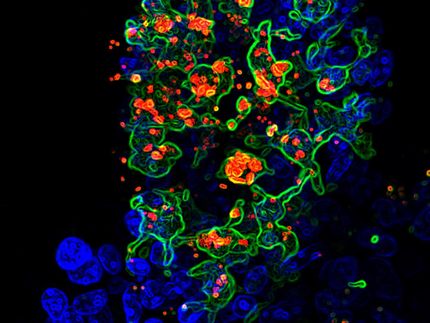ProteoNic and Fraunhofer IME sign Research License and start collaboration on protein expression in plants
Advertisement
ProteoNic and Fraunhofer Institute of molecular biology and Applied Ecology (Fraunhofer IME) announced their collaboration regarding protein expression in plant systems. Fraunhofer IME has obtained a Research License to use ProteoNic's UNic(tm) expression technology in a variety of its research projects. In addition, ProteoNic will support Fraunhofer IME by supplying its expertise and research services regarding translation optimization for the development of a plant expression system that produces antibodies at commercially relevant yields.
Stefan Schillberg, Head Department of Plant Biotechnology at the Fraunhofer IME commented: "The IME has pioneered the expression of recombinant antibodies in plants demonstrating that plant cells are capable of expressing antigens and functional antibodies. We believe that implementation of ProteoNic's expression optimization cassettes will allow us to develop improved plant expression vectors finally resulting in increased recombinant protein yields. This will be an important step towards the establishment of sustainable plant production platforms".
ProteoNic CSO Raymond Verhaert remarks: "We are proud that the highly renowned scientists of Fraunhofer IME recognize the value of our expression enhancing technology utilizing the potential of optimizing messenger RNA usage in cell factories. The strong position of Fraunhofer covering the broad range from fundamental research to industrial applications enhances ProteoNic's track record for the UNic(tm) technology and related services for plant expression systems, in addition to our mammalian and fungal applications".
Other news from the department science
Most read news
More news from our other portals
See the theme worlds for related content
Topic world Antibodies
Antibodies are specialized molecules of our immune system that can specifically recognize and neutralize pathogens or foreign substances. Antibody research in biotech and pharma has recognized this natural defense potential and is working intensively to make it therapeutically useful. From monoclonal antibodies used against cancer or autoimmune diseases to antibody-drug conjugates that specifically transport drugs to disease cells - the possibilities are enormous

Topic world Antibodies
Antibodies are specialized molecules of our immune system that can specifically recognize and neutralize pathogens or foreign substances. Antibody research in biotech and pharma has recognized this natural defense potential and is working intensively to make it therapeutically useful. From monoclonal antibodies used against cancer or autoimmune diseases to antibody-drug conjugates that specifically transport drugs to disease cells - the possibilities are enormous


























































